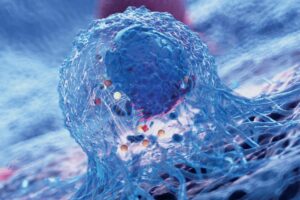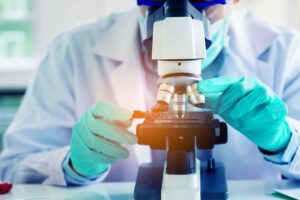What is already known
Gastric bypass — a surgical procedure that decreases the size of the stomach — is a mainstay treatment for obesity. The procedure helps sustained weight loss and can reduce the need for medications used to treat metabolic syndrome — a cluster of conditions that occur together, increasing a person’s risk of diabetes and other diseases. Although gut microbes have been implicated in improving metabolic health after gastric bypass, the mechanisms underlying these beneficial effects have remained elusive.
What this research adds
Researchers transferred gut bacteria from obese people who underwent a gastric bypass surgery into germ-free mice fed a high-fat, high-sugar diet. The microbiota transplants were done one month before and six months after surgery. Mice that received the post-surgery microbiota had significant changes in microbiota composition. The animals also showed improved insulin sensitivity, increased levels of brown fat — a type of fat that stores energy and burns it to regulate body temperature — and higher energy expenditure compared with mice that received the pre-surgery microbiota.
Conclusions
The findings suggest that the gut microbiota contributes to improve metabolic health after gastric bypass surgery.
Gastric bypass — a surgical procedure that decreases the size of the stomach — is a mainstay treatment for obesity, but the mechanisms underlying some of the procedure’s beneficial effects on metabolic health have remained elusive. A new study done in mice shows that gastric bypass surgery can boost energy expenditure, improved insulin sensitivity and increase the levels of brown fat — a type of fat that stores energy and burns it to regulate body temperature.
The findings, published in Cell Reports Medicine, suggest that the gut microbiota contributes to improve metabolic health after gastric bypass surgery.
In obese people, gastric bypass helps sustained weight loss and can reduce the need for medications used to treat metabolic syndrome — a cluster of conditions that occur together, increasing a person’s risk of diabetes and other diseases. Gut microbes have been implicated in improving metabolic health after gastric bypass, but how exactly the procedure leads to those improvements is unclear.
To address this question, Dana Philpott at the University of Toronto and her colleagues tested the effects of gastric bypass surgery on gut microbes. The team also investigated whether changes in a person’s gut microbiota after the surgical procedure could help improve the metabolism of obese mice.
Microbial transplant
The researchers collected stool samples from four obese people one month before they underwent gastric bypass surgery as well as six months after the procedure. Following the procedure, all participants lost weight and showed improvements in metabolic health.
To test whether these beneficial effects on the participants could be mediated by changes in the composition of the gut microbiota, the researchers transferred stool samples from the same participant pre- and post-surgery into germ-free mice fed a high-fat, high-sugar diet.
Mice that received the post-surgery microbiota showed significant changes in microbiota composition. The microbiotas of mice transplanted with post-surgery stools from two participants were dominated by Verrucomicrobia, whereas those of mice transplanted with the post-surgery stool from a third participant showed increased levels of Blautia bacteria, the researchers found.
Better metabolism
Mice that received the post-surgery microbiota showed normal glucose regulation and improved insulin sensitivity. They also had increased levels of brown fat and a higher energy expenditure compared with mice that received the pre-surgery microbiota.
Further analyses suggested that animals that received the post-surgery microbiota were better at metabolizing sugars and micronutrients than those that received the pre-surgery microbiota. The animals also showed reduced signs of inflammation in their visceral fat, which wraps around abdominal organs deep inside the body.
The findings add to mounting evidence that changes in the gut microbiota can improve metabolic health. The results, the researchers say, also “give support to the use of prebiotics or probiotics, as well as healthy human [fecal microbiota transplant] applications, to improve metabolism in obese individuals, with the ultimate goal of avoiding the need for surgery.”











